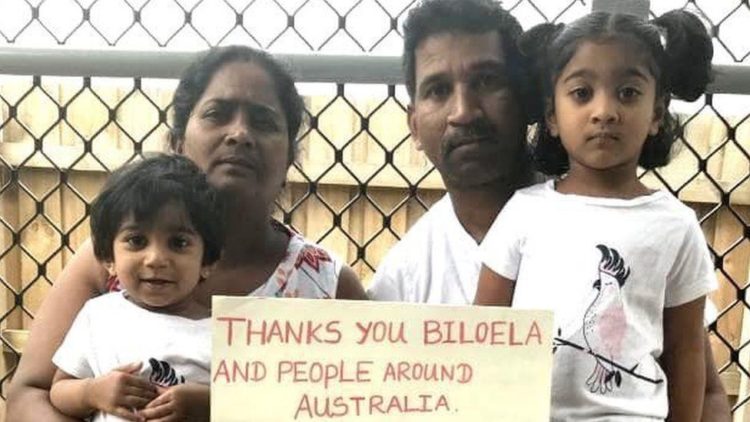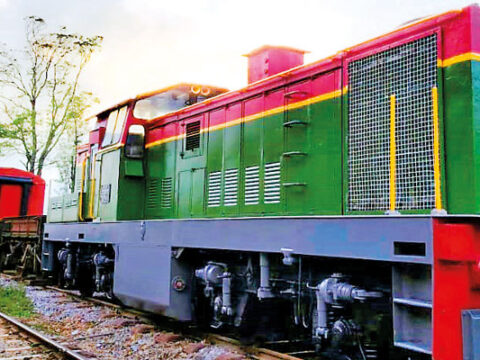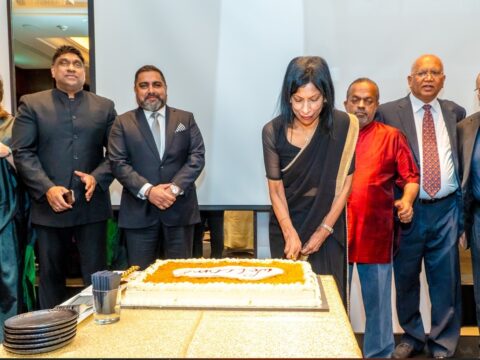SYDNEY: Australia’s new government said it would give temporary visas to a Sri Lankan asylum seeker family held in immigration detention since 2019, a step towards closure of one of the country’s most controversial migration cases, according to a report by Reuters.
The Tamil family of four, Priya and Nadesalingam Murugappan and their two daughters, have been a cause celebre since being detained in the rural Australian town where they settled years earlier. The family was taken into the country’s offshore detention system, designed to deter asylum seekers from entering by boat.
Amid growing public anger, the conservative government moved the family to mainland Australia last year when the younger daughter, Tharnicaa, needed urgent medical care for sepsis linked to untreated pneumonia. The family has since been in community detention onshore.
The new centre-left Labor government, which won a national election on May 21 after nine years in opposition, said it would give the family bridging visas, allowing them to return to their adopted home town, Biloela, 600 kilometres (370 miles) northwest of Brisbane, until their asylum application is resolved. The visas to the Murugappan family, allows them to temporarily live and work in Biloela.
“When I visited Biloela in 2019, I saw just how much the community loves Priya, Nades, Kopika and Tharnicaa,” Prime Minister Anthony Albanese wrote in a tweet, referring to the family members.
“Today my government has enabled them to return home,” added Albanese, who was sworn in as leader on Monday.
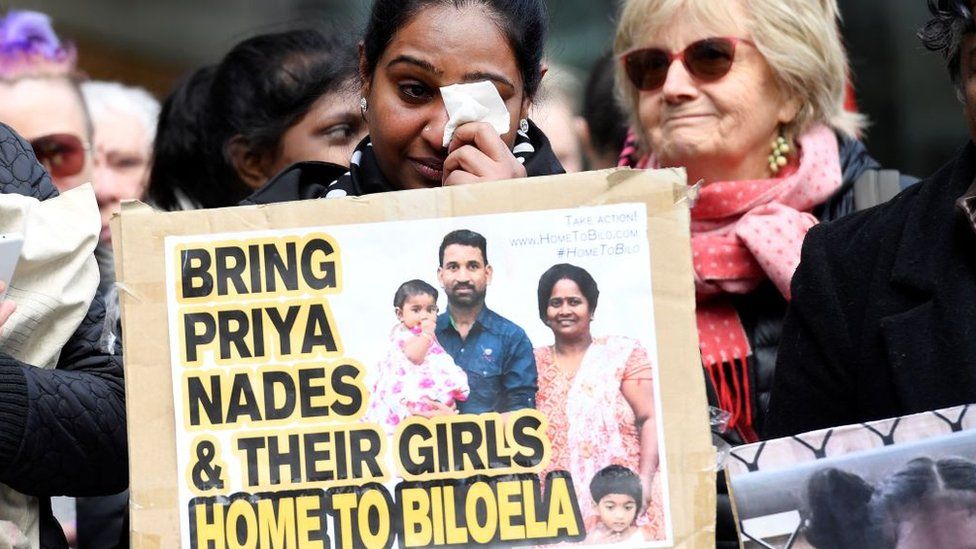 They are Australia’s most famous asylum seekers, but they’re barely known by their family name.
They are Australia’s most famous asylum seekers, but they’re barely known by their family name.
Instead they’re “the Biloela family” – named after the small town where they lived for four years.
The former conservative government had resisted calls to free the family insisting that doing so would undermine its hardline immigration policies. But criticism about the family’s treatment grew, including by conservative members.
The just-elected Labor government said before the election that it would adopt the conservatives’ tough border policies but that it considered the Biloela family’s treatment unfair.
Priya and Nadesalingam Murugappan arrived in Australia by boat in 2012 and 2013 and sought asylum..Each settled in outback Biloela, where they met, fell in love, married and had two girls – Kopika, seven, and Tharnicaa, four.
In 2018, after Australia rejected the asylum applications of Priya and Nadesalingam, who fled Sri Lanka amid a civil war, Canberra detained the family for deportation to Sri Lanka.
When court orders blocked their deportation, Australia in 2019 moved the family to Christmas Island, a territory some 1,550 km (960 miles) northwest of the mainland, before their return to the mainland last year.
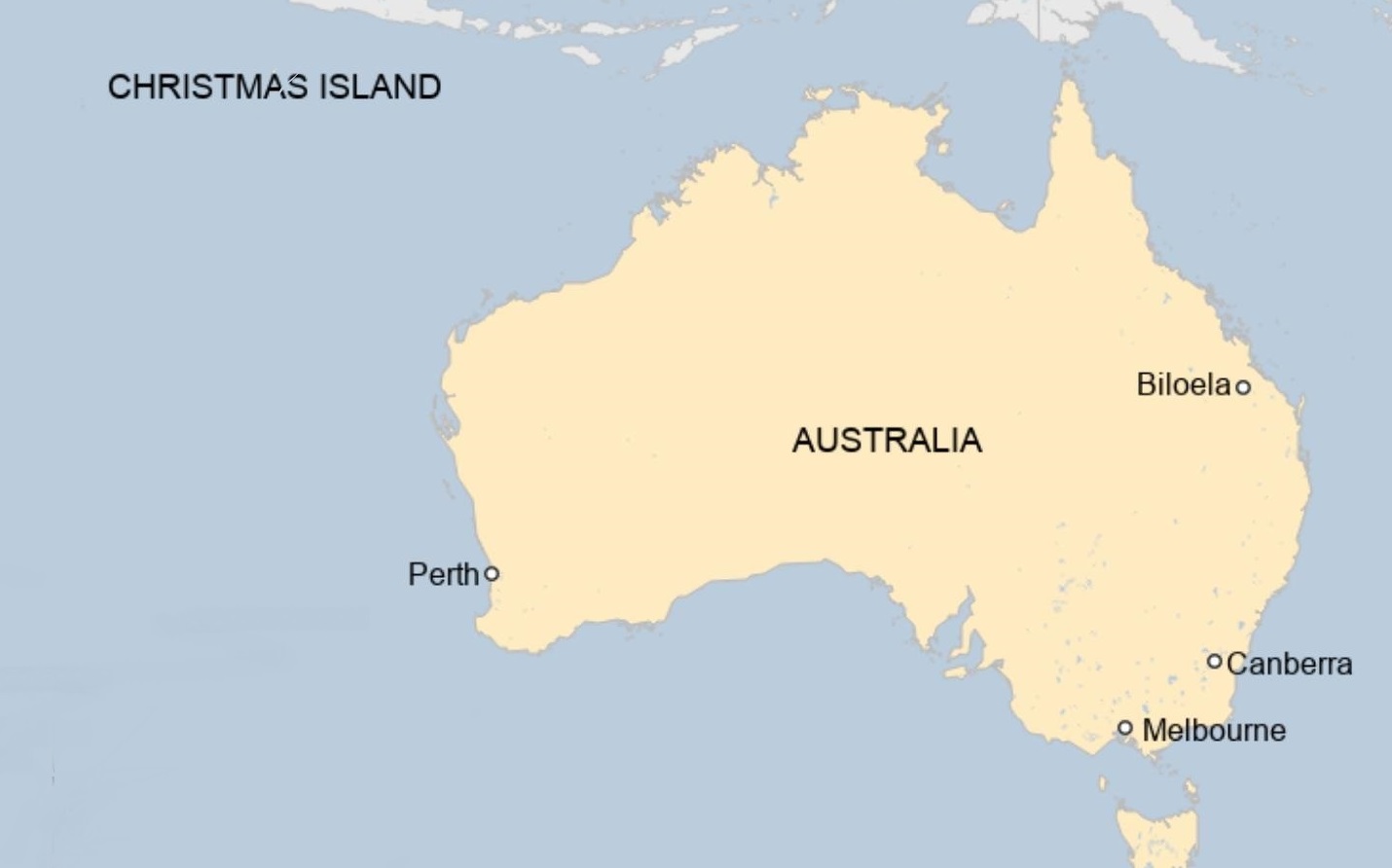
Legal challenges to the decision to deny them protection remain before Australia’s courts.
Under controversial policies, Australia can hold asylum seekers like the Murugappans in indefinite detention while it assesses their refugee claims or takes steps to deport them.
“We are a strong enough society to say that we should not treat people badly, in order to send a message to others,” he said.
“It’s beyond my comprehension how this has gone on for so long, at enormous cost.”
But the family’s supporters have called for the government to use their powers to grant them permanent residency, instead of temporary visas.
“Their journey home to Bilo marks the end of a long, painful chapter in their lives, and the beginning of a lifetime of healing and recovery,” family friend Angela Fredericks tweeted.
“But this family will never be safe until they have permanency in Australia.”
The family has also waged a long legal battle for their claim to asylum to be reassessed.
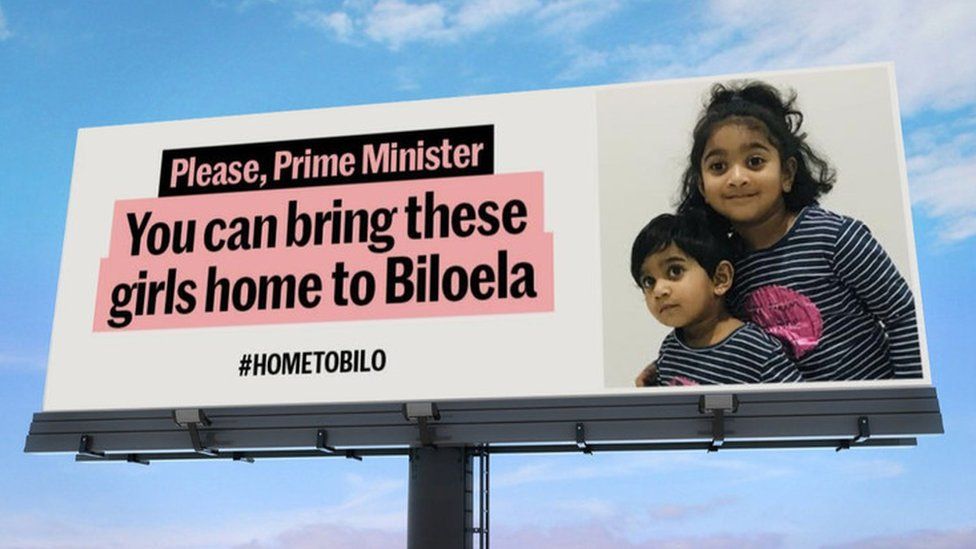 After two attempts to deport the family, a court injunction in 2019 ruled they could not be removed from the country until their case was resolved. They spent more than 1,500 days in immigration detention – much of it on Christmas Island, an Australian outpost in the Indian Ocean. Last year, they were moved from the island to community detention in Perth after Tharnicaa needed urgent medical care.
After two attempts to deport the family, a court injunction in 2019 ruled they could not be removed from the country until their case was resolved. They spent more than 1,500 days in immigration detention – much of it on Christmas Island, an Australian outpost in the Indian Ocean. Last year, they were moved from the island to community detention in Perth after Tharnicaa needed urgent medical care.
The first attempt came after the family’s temporary visa expired in 2018. Guards arrived in a pre-dawn raid – a common deportation tactic, lawyers say.
The family were flown to a detention centre across the country in Melbourne. A few days later they were bundled onto a flight to Sri Lanka.
Their deportation would have proceeded as planned had something unusual not happened.
When their friends were taken away, the 6,000-strong town of Biloela took their outrage to the media. They launched the #HometoBilo campaign and lobbied politicians. A petition in support of the family has more than 350,000 signatures.
“They’re one of us. They belong to Biloela,” says Angela Fredericks, a supporter who met Priya through church in Biloela.
Lawyers secured an injunction to stop the deportation, and the Murugappans were sent back to detention in Melbourne.
A legal battle followed and ultimately the courts ruled against the family’s claim.
So in 2019, the government swung into action again. Guards gave the family two hours to pack before they were put on a flight bound for Sri Lanka.
Panicked, Nades alerted lawyers. On the plane he filmed scenes of the chaotic removal, his infant children wailing as their mum was dragged on board. Australians woke up to the distressing vision shared in news bulletins and on social media.
Once again, lawyers secured an injunction and the plane was ordered to turn around mid-flight. The family was brought back to Australia and sent to Christmas Island, some 3,000km (1,800 miles) off the country’s west coast.
A 400-bed detention centre there had been recently re-opened. The Murugappans became its sole occupants.
Australia’s tough immigration laws allow it to lock up what it terms “unlawful non-citizens” like the Murugappans in indefinite detention.
Thousands of asylum seekers have been held in facilities off the mainland since 2013, when the government introduced “offshore processing” of those who arrive by boat. They wait there while their refugee claims are assessed, a process that can take years.
The UN has criticised the poor living standards and conditions in the camps. At least 12 asylum seekers have died in Australian offshore detention since 2013, six of them suicides.
The government has long defended its policy, which was brought in after people died at sea attempting to reach Australia.
It stands by its commitment that anyone who comes by boat will never be settled in Australia, arguing this policy has disrupted the people-smuggling trade and stopped drownings.
It appears to have worked: very few boats have arrived since 2014.
Against that backdrop, the Murugappans continue to be held in detention.
“It’s so cruel,” says University of Adelaide law professor Alex Reilly. “It is so clearly against the normal ideas of rule of law and human rights.
“Even when things get absurd and ridiculous, the Australian government will stick to their guns because they think it plays well politically,” he says.
“If you look at their case through a human lens, no one could stomach it.”
